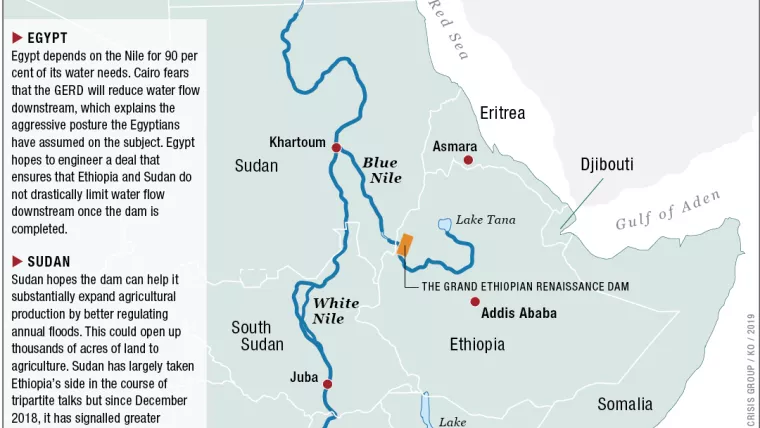Egypt-Ethiopia Water Dispute: The Grand Ethiopian Renaissance Dam in 2025
As of August 19, 2025, the longstanding water dispute between Egypt and Ethiopia remains a critical issue in Northeast Africa, centered around the Grand Ethiopian Renaissance Dam (GERD) on the Blue Nile.
This conflict involves complex geopolitical, environmental, and legal dimensions, with significant implications for regional stability and development.
Background of the Dispute
The Nile River is the primary water source for Egypt, supplying approximately 97% of the country's water needs.
Historically, Egypt has relied on colonial-era treaties, notably the 1929 and 1959 agreements, which allocated the majority of the Nile's waters to Egypt and Sudan.
Ethiopia, however, was not a signatory to these treaties and has contested their legitimacy, advocating for equitable utilization of the Nile's resources.
In 2011, Ethiopia initiated the construction of the GERD, aiming to address its energy deficits and promote economic development.
The dam, upon completion, is expected to generate over 6,000 megawatts of electricity, significantly enhancing Ethiopia's power generation capacity.
However, Egypt perceives the dam as a potential threat to its water security, fearing that its operation could reduce the flow of Nile water downstream.
Recent Developments
In July 2025, Ethiopian Prime Minister Abiy Ahmed announced the completion of the GERD, marking a significant milestone in the project.
The dam is scheduled for official inauguration in September 2025.
Despite this progress, Egypt has expressed concerns over the lack of a legally binding agreement regarding the dam's operation, emphasizing the necessity for a comprehensive accord that addresses water sharing and operational transparency.
The United States, under President Donald Trump's administration, has shown interest in mediating the dispute.
President Trump has called for a "just agreement" between Egypt and Ethiopia, highlighting the importance of the Nile as a vital resource for Egypt.
While the U.S. has expressed willingness to facilitate negotiations, the path to a resolution remains fraught with challenges.
Implications for Regional Stability
The GERD dispute has broader implications for regional stability in Northeast Africa.
Sudan, situated between Egypt and Ethiopia, has expressed concerns about the dam's potential impact on its own water resources.
The Nile Basin Initiative, a cooperative framework involving multiple Nile basin countries, has been strained by differing national interests and priorities, complicating efforts to reach a consensus on water sharing.
Environmental considerations also play a crucial role in the dispute.
The operation of the GERD could affect downstream ecosystems and agriculture, necessitating comprehensive environmental assessments and cooperative management strategies.
Conclusion
The Egypt–Ethiopia water dispute over the GERD underscores the complexities of transboundary water management and the challenges of balancing national development aspirations with regional cooperation.
As the official inauguration of the dam approaches, it is imperative for all parties involved to engage in constructive dialogue, prioritize mutual interests, and work towards a sustainable and equitable resolution that ensures the fair distribution of the Nile's resources.

